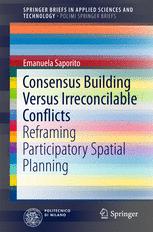

Most ebook files are in PDF format, so you can easily read them using various software such as Foxit Reader or directly on the Google Chrome browser.
Some ebook files are released by publishers in other formats such as .awz, .mobi, .epub, .fb2, etc. You may need to install specific software to read these formats on mobile/PC, such as Calibre.
Please read the tutorial at this link: https://ebookbell.com/faq
We offer FREE conversion to the popular formats you request; however, this may take some time. Therefore, right after payment, please email us, and we will try to provide the service as quickly as possible.
For some exceptional file formats or broken links (if any), please refrain from opening any disputes. Instead, email us first, and we will try to assist within a maximum of 6 hours.
EbookBell Team

0.0
0 reviewsThis book aims to identify ways of overcoming the limitations of the communicative tradition in understanding participatory spatial planning. Three conceptual models that offer different perspectives on public and civic participation in complex urban planning processes are presented and reviewed: the consensual model, which conceives of planning as a collective decision-making practice geared toward consensus building and conflict resolution; the conflictual model, which views planning as a social mobilization practice addressed at empowerment of marginalized groups; and the trading zone model, which reframes collaborative planning as a coordination activity with respect to practical proposals in the presence of unstable and conflicting rationalities and values. The controversial story of the Integrated Intervention Program “PII Isola Lunetta” in Milan is examined through the interpretative lenses of these models, with detailed interpretation of how each model performs in the field. The book concludes by offering critical reflections on the reframing of participatory spatial planning, highlighting the value of trading zones/trading languages and boundary objects as tools for understanding and addressing collaborative practices in complex and conflictual urban planning processes.